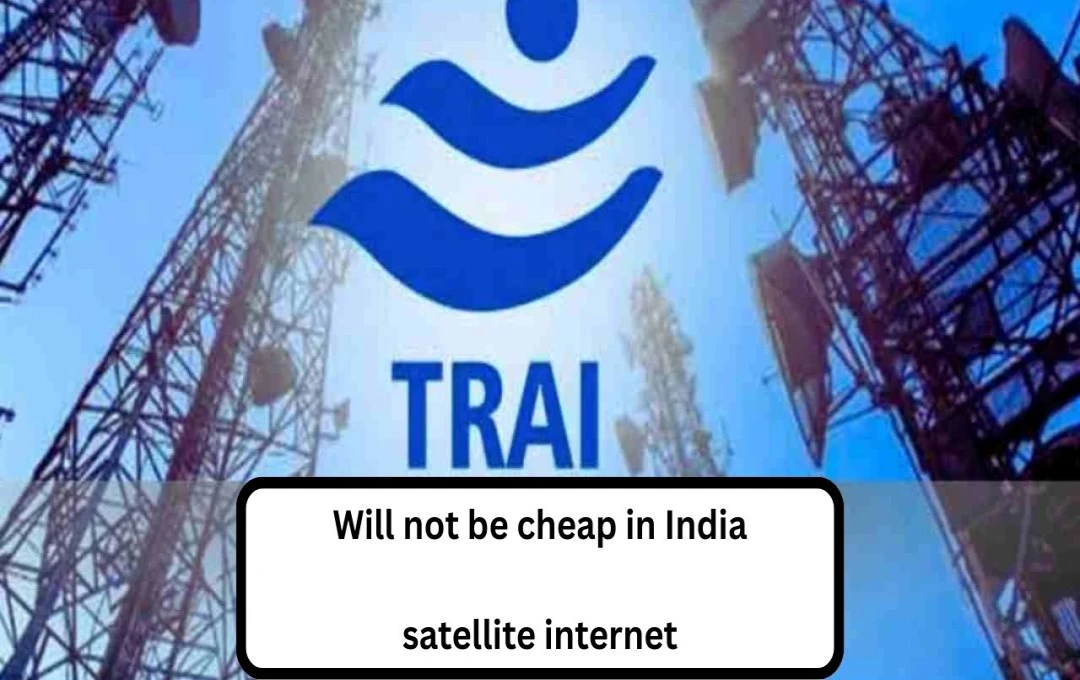The Telecom Regulatory Authority of India (TRAI) has recommended to the government that satellite internet service providers should pay 4% of their annual gross revenue (AGR) as spectrum usage charges.
Technology: The Telecom Regulatory Authority of India (TRAI) has made key recommendations to the government for expanding satellite internet services in India, potentially significantly impacting the cost and operation of these services. These recommendations will affect companies providing satellite broadband services in India, such as Elon Musk's Starlink, OneWeb, and Amazon's Project Kuiper.
These new TRAI recommendations will influence the operational costs of satellite internet service providers, and may also create new opportunities for competition and investment in the sector.
4% Spectrum Charge: A New Expense for Satellite Companies
TRAI has recommended that the government levy a 4% spectrum usage charge on satellite internet service providers' annual gross revenue (AGR). This means these companies will have to pay a percentage of their total revenue to the government for spectrum usage. This could increase their operational costs, potentially leading them to consider raising charges for their customers.
Companies like Starlink, OneWeb, and Amazon's Project Kuiper are poised to provide satellite internet services in India, and this recommended charge could alter their cost structure. However, TRAI states this charge will help generate necessary resources for company operations and assist the government in ensuring the expansion of satellite internet services.

Annual Charge of ₹500 for Urban Customers
TRAI has also recommended that satellite internet companies providing services in urban areas be allowed to charge an additional annual fee of ₹500 per customer. This fee is likely proposed to keep satellite internet services affordable in rural and remote areas.
Several initiatives are underway in India to promote digital inclusion, and this TRAI move could play a significant role in expanding satellite internet services. This fee could be a mechanism to increase internet access in rural areas, potentially attracting more investment and improving service quality for companies.
License Validity: Clarity Provided to Companies
TRAI has recommended a 5-year validity period for satellite spectrum licenses. However, this period can be extended by 2 years if companies require additional time for long-term planning and investment. This step will help companies plan their services and strategies with a long-term perspective. This will provide companies with greater clarity regarding their investment and development strategies, potentially aiding the expansion of satellite internet services.
This licensing system will foster trust between the government and companies, potentially leading to increased competition and innovation in the satellite internet sector. Companies will be better positioned to improve their services and strengthen their market position more effectively for customers by working with a long-term outlook.
What Will Be the Impact?

Following the implementation of these recommendations, satellite internet services in India may become more expensive, particularly in urban areas where companies will be allowed to charge an additional ₹500. However, this step could help keep internet services affordable in rural and remote areas, promoting digital inclusion.
Furthermore, the 4% spectrum charge could impact companies' investment strategies. Companies may increase their prices to cover their costs, ultimately affecting customers. However, this could also lead to faster expansion of internet services in India, especially in areas lacking traditional internet connectivity.













